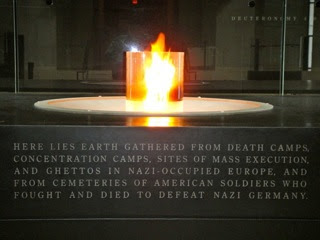This is Amorella. October weather in the western Virginia mountains. Not a flicker of blue sky, but with friends it makes little difference. The inside game, Dominoes.
According to Merriam-Webster’s Dominoes comes from the: “French, probably Latin (in the ritual formula benedicamus Domino let us bless the Lord) circa 1694”. Dominoes is “plural but usually singular in construction”. That is very interesting in both points, neither of which I had thought of before.
What is your inclination towards rituals, orndorff?
I think of rituals as habits, usually of the spiritual nature, a purposeful exercise connecting one’s personal identity with something the mind accepts as spiritual. A religion will do but it doesn’t have to be. The opening game of professional baseball each year is a Spring rite. It is not the same as Passover or Easter but still they all fit in a general definition of ritual as I see it.
Isn’t it blasphemous to put an opening game of professional baseball in the same league with Passover or Easter?
I don’t know. What do you think, Amorella? Is it?
Relative to the books we have written, it is not. Here is the reason. I used a pagan Druid named Merlyn to explain a spiritual concept connecting the Living and the Dead with God, the Creator of All Things and Beyond. This sense of G-d is similar to the Jewish concept of G-d, who is a ‘first-concept’ personal G-d among the three similar religions of the twenty-first century.
It is strange that you can write this but I cannot.
I do not expect you to have to explain such concepts behind the books orndorff. I put them together, you consciously contributed from time to time, but the books are of my design not yours. You think the books contain some of your own, that is, human spirituality, and you assume a few other human beings may be interested. That’s as far as you need go.
Tomorrow, we go to the Holocaust Museum for the topic as you visited there again today, for the second time. The first visitation was in late September last year. I have some special questions for you as to the plowing of your feelings concerning the subject of the Jewish Holocaust.
The first time I personally came in contact with this subject is when I was twelve years old and found some hidden ten or so photographs my father, who helped liberate Dachau, brought back from the war in Germany. I checked my notes from last year and this is what I found on 27 September 2008:
“You spent much of the day at the United States Holocaust Memorial Museum. You showed members of the staff the photographs but have since realized you have others at home. A curator was not on duty today and they suggested you bring them in on Monday. You may. You saw no other pictures of Dachau like the ones your father took. You bought their book, The World Must Know, the history of the Holocaust as told by the museum.
The architecture of the museum is quite striking and excellently put throughout. I touched several things to put them into my mind as ‘personal’ and thus ‘sacred’ objects. I was emotionally taken by several exhibits, but mostly so by the voices of the Dead.
You are concerned by your wording in the above paragraph, however you will hear no denial of it by me. Your father’s pictures drew tears in the eyes of one of the older clerks on duty. They are real enough representations of what your father and his camera saw on 29 April 1945. – Amorella.”
And, on the following Monday, 29 September 2008:
“You found out that your photographs, though ‘original’ of the time, are copies. You saw . . . a museum specialist in the photographic reference collection. . . . She thought one of the pictures was not a ‘copy’ but she is not positive. She wants you to find the others and send copies to her. You and [your friend] got to see the Archives on the fifth floor of the Holocaust Museum.” [Amorella]
I forgot the specialist name and email address and did not check on the other photographs I did not send. I did not realize this until tonight. I will have to look for them.
My father, Richard B. Orndorff was in the 260th Engineering Combat Battalion (7th Army). Lieutenant Colonel Oliver G. Benson’s Double the Guard, a booklet containing the complete history of the 260th history from 27 October 1944 to 9 May 1945 states:
“The pattern was clear now. We knew now, that we’d never get to Berlin. But to the 7th Army went on [a] much more important task, it seemed to us – that of grubbing out the last roots of Nazidom. It led us to Nurnberg, Hitler’s shrine to the party, Nurnberg which saw the proudest moments of the Fuhrer. It led us through the infamous extermination camp at Dachau which few of us will ever forget. From there to Munich, the birthplace of the Nazi idea, born in a beerhall. There we found an airfield fully equipped with planes gassed and armed, but oddly enough – no pilots. . . .”
**
You feel that you need this background documentation because you consider yourself ‘mostly fiction’. Sadly, this episode in your father’s life was not fiction. The photographs you discovered locked in a box when you were twelve were not fiction either. – Amorella.

















